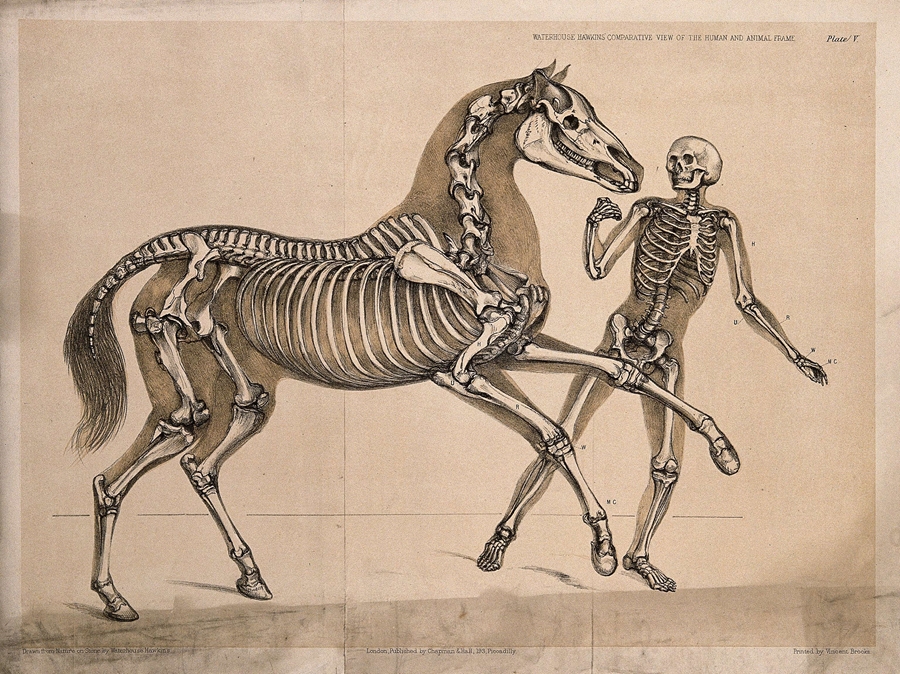
Off the coast of Japan, scientists have observed monkeys washing sand off potatoes in the seawater. Within a few years, new generations of monkeys were following the practice. Likewise, New Caledonian crows have been seen crafting sticks into hooked tools to collect larvae. These types of animal behaviors are not a coincidence.
Ed Minar, professor of philosophy, will discuss animal consciousness, language, tool use, culture and other mysteries in his preview lecture for his spring 2025 Honors College Signature Seminar titled Animal Minds.
The lecture will be held at 5:15 p.m. Tuesday, Sept. 10, in Gearhart Hall Auditorium (GEAR 026) and will explore how feelings are assigned to animals and how humans can better understand animal consciousness and themselves.
“There’s a lot of continuity between how we interpret and read other humans and how we interpret and read animals,” Minar said.
That understanding is a key element of his spring 2025 course, which will examine the complexities of relationships between humans and animals. Students will also explore – and challenge – centuries of philosophical thinking on animal consciousness, while interacting with emerging research.
As a philosopher, dog trainer and roommate to three Australian shepherds, Minar has had decades of experience in understanding animal thinking and behavior. In addition to consciousness and culture, Minar is interested in animal husbandry and better understanding how we interact with animals, and vice versa, in training and business.
“What difference does our understanding of animal consciousness make to the ethical treatment of non-human animals?” Minar asked. “By thinking about these issues in animals, we learn about ourselves.”
Due to the vast and growing research in the field, Minar doesn’t expect students to answer these challenging questions definitively. Instead, he encourages them to find directions for exploration and “go down the rabbit hole of research.”
Most students will bring anecdotal experiences with their pets to class, and Minar encourages this.
“There’s a middle ground,” he noted, referencing the meaningful observations we all bring to the research in contrast with scientific research. “We conduct experiments into animal thinking processes, but we also bring everyday observations to the process of understanding.”
When posed the age-old question, can you teach old dogs new tricks? Minar argued, “Absolutely.”
“With animals, you have to think about motivation,” Minar said. “Define what motivates and inhibits them.”
SIGNATURE SEMINARS EXPLORE DIVERSE TOPICS
Animal Minds is one of two Honors College Signature Seminars scheduled for spring 2025. The other course offered is:
Cancer and Chronic Disease in the American Healthcare Ecosystem — taught by Tim Muldoon, associate professor of biomedical engineering.
The dean of the Honors Colleges nominates top research faculty to participate in this program, and those selected to teach will become Dean’s Fellows in the Honors College.
Honors students must apply to participate, and those selected will be designated Dean’s Signature Scholars. The course application is posted online on the Signature Seminars web page. The deadline to apply is Thursday, Oct. 10, 2024.
ABOUT EDWARD MINAR
Edward Minar is a professor of philosophy and former chair of the department. He has taught at the U of A for over 25 years and received A.B., A.M. and Ph.D. degrees in philosophy from Harvard University.
His work is in part inspired by the great 20th century philosopher Ludwig Wittgenstein, on whom he has written extensively. He is particularly interested in epistemology or theory of knowledge, where he explores responses to skeptical doubts about everyday and scientific knowledge of the world around us; in philosophy of language, where he is concerned with how language shapes our worldviews; and in philosophy of mind, where he focuses on the problem of other minds (how we know or “get in touch with” the minds of other people and other animals).
He is the author of “What Your Dog Can Teach You About Philosophy of Mind” in Stephen Hales, ed., What Philosophy Can Tell You About Your Dog (Open Court, 2008), and he is working on books on other minds and animals. He is interested in developing a “critical anthropomorphism” justifying the use of psychological language traditionally limited to human beings to understand animal behavior in both scientific and other contexts.
He has been working with dogs – competing in agility and obedience and teaching obedience classes (in which dogs and their humans learn to communicate with each other) – for over 20 years. He lives with three very intelligent and self-aware Australian shepherds.
About the Honors College: The University of Arkansas Honors College was established in 2002 and brings together high-achieving undergraduate students and the university’s top professors to share transformative learning experiences. Each year the Honors College awards up to 90 freshman fellowships that provide $80,000 over four years, and more than $1 million in undergraduate research and study abroad grants. The Honors College is nationally recognized for the high caliber of students it admits and graduates. Honors students enjoy small, in-depth classes, and programs are offered in all disciplines, tailored to students’ academic interests, with interdisciplinary collaborations encouraged. All Honors College graduates have engaged in mentored research.
About the University of Arkansas: As Arkansas' flagship institution, the U of A provides an internationally competitive education in more than 200 academic programs. Founded in 1871, the U of A contributes more than $2.2 billion to Arkansas’ economy through the teaching of new knowledge and skills, entrepreneurship and job development, discovery through research and creative activity while also providing training for professional disciplines. The Carnegie Foundation classifies the U of A among the few U.S. colleges and universities with the highest level of research activity. U.S. News & World Report ranks the U of A among the top public universities in the nation. See how the U of A works to build a better world at Arkansas Research and Economic Development News.
Topics
Contacts
Shelby Gill, director of communications
Honors College
479-575-2024,
segill@uark.edu